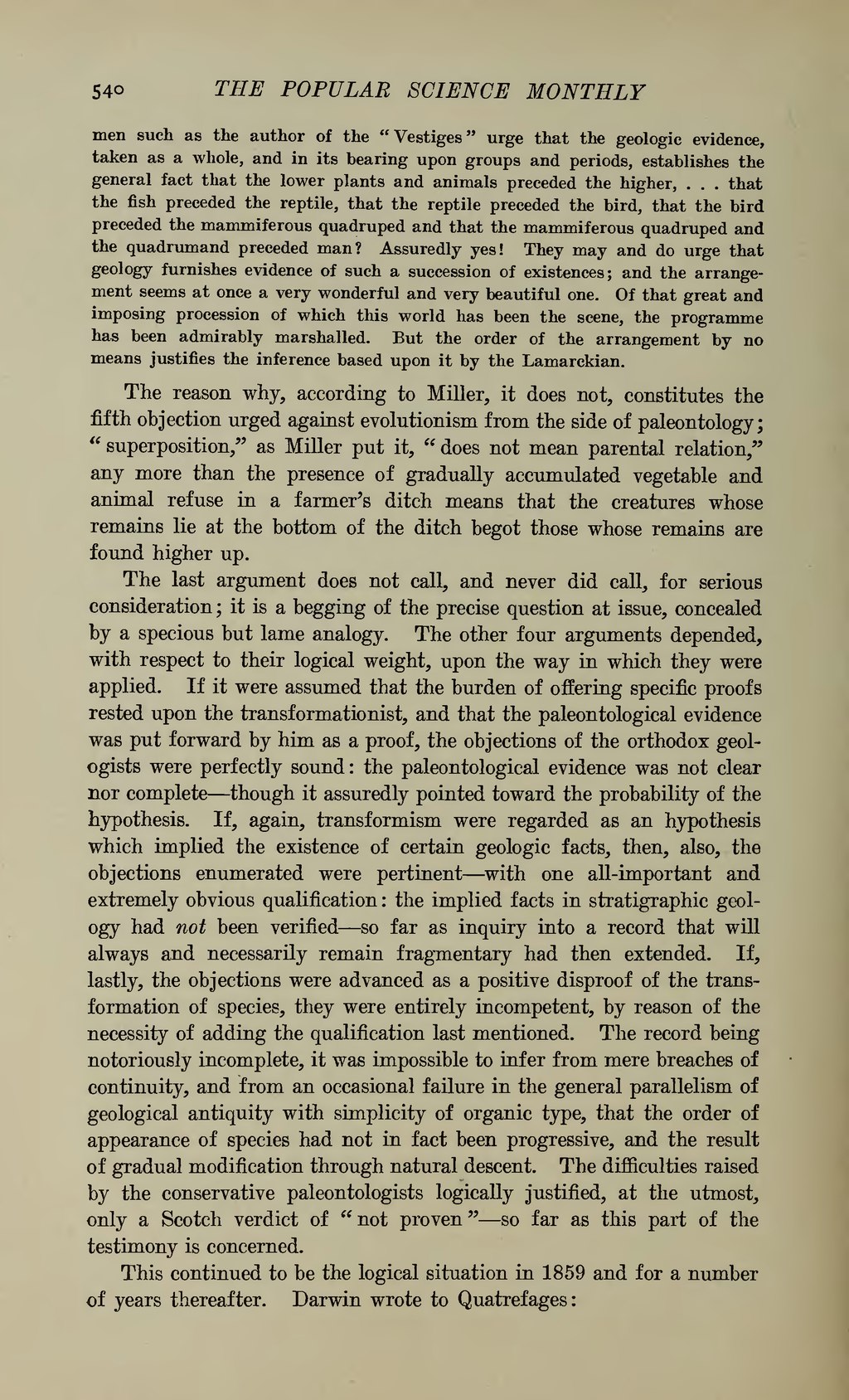The reason why, according to Miller, it does not, constitutes the fifth objection urged against evolutionism from the side of paleontology; "superposition," as Miller put it, "does not mean parental relation," any more than the presence of gradually accumulated vegetable and animal refuse in a farmer's ditch means that the creatures whose remains lie at the bottom of the ditch begot those whose remains are found higher up.
The last argument does not call, and never did call, for serious consideration; it is a begging of the precise question at issue, concealed by a specious but lame analogy. The other four arguments depended, with respect to their logical weight, upon the way in which they were applied. If it were assumed that the burden of offering specific proofs rested upon the transformationist, and that the paleontological evidence was put forward by him as a proof, the objections of the orthodox geologists were perfectly sound: the paleontological evidence was not clear nor complete—though it assuredly pointed toward the probability of the hypothesis. If, again, transformism were regarded as an hypothesis which implied the existence of certain geologic facts, then, also, the objections enumerated were pertinent—with one all-important and extremely obvious qualification: the implied facts in stratigraphic geology had not been verified—so far as inquiry into a record that will always and necessarily remain fragmentary had then extended. If, lastly, the objections were advanced as a positive disproof of the transformation of species, they were entirely incompetent, by reason of the necessity of adding the qualification last mentioned. The record being notoriously incomplete, it was impossible to infer from mere breaches of continuity, and from an occasional failure in the general parallelism of geological antiquity with simplicity of organic type, that the order of appearance of species had not in fact been progressive, and the result of gradual modification through natural descent. The difficulties raised by the conservative paleontologists logically justified, at the utmost, only a Scotch verdict of "not proven"—so far as this part of the testimony is concerned.
This continued to be the logical situation in 1859 and for a number of years thereafter. Darwin wrote to Quatrefages:

